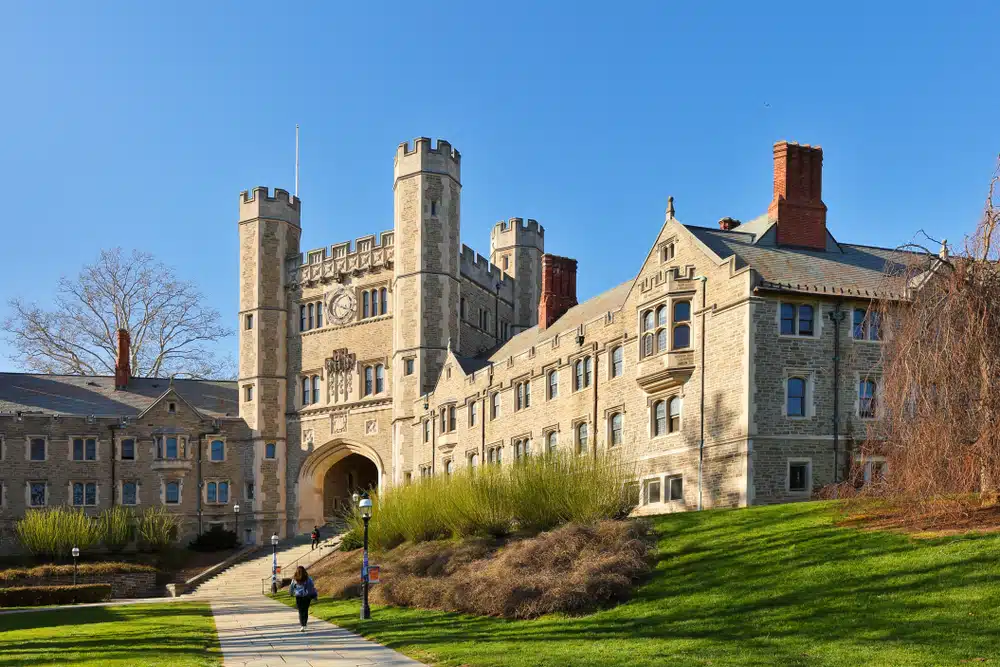Princeton Pre-College Programs
The journey to higher education is often marked with anticipation and curiosity. In this article, we will explore how Princeton University fare when it comes to offering its pre-college programs. These programs allow students to experience Princeton’s academic rigor and vibrant community before transitioning to full-time collegiate study.
Understanding the Purpose of Pre-College Programs
Pre-college programs are significant in shaping a student’s journey toward higher education. These programs provide high school students with an immersive academic experience that goes beyond the realms of their high school curriculum.
Imagine being a high school student with a thirst for knowledge and a desire to explore subjects beyond your regular classes. Pre-college programs allow you to delve into various subjects, from science and mathematics to literature and the arts. These programs are designed to challenge and stimulate your intellectual curiosity, preparing you for the rigors of university-level studies.
But pre-college programs are not just about academics. They also offer a unique social experience that can be invaluable in your personal growth. Picture yourself surrounded by peers from different backgrounds and cultures, all sharing a common passion for learning. Through group projects, discussions, and extracurricular activities, you will learn to navigate a culturally diverse setting and develop lifelong friendships.
Benefits of Pre-College Programs
These programs offer students exposure to the demands of university life, both academically and socially. On an academic front, students gain insights into fundamental concepts that brace them for more complex studies at the university level. Socially, students learn to navigate a culturally diverse setting and cultivate connections that last beyond the program’s timeline.
Imagine attending lectures by esteemed professors who are experts in their fields. You can engage in thought-provoking discussions, ask questions, and gain a deeper understanding of the subjects you are passionate about. These experiences will enhance your academic skills and give you a taste of what it’s like to be a university student.
Furthermore, pre-college programs often include workshops and seminars on college admissions, providing you with valuable insights and guidance on the application process. You will learn about the qualities and experiences that universities like Princeton value in their applicants, giving you a competitive edge in college admissions.
Who Should Consider Pre-College Programs?
Pre-college programs, like those at Princeton, are broad-based and inclusive. They welcome students from diverse academic backgrounds and interests. These programs benefit students who aim to tread an educational path that aligns with Princeton’s offerings and advantages.
Are you a student passionate about a particular subject and wanting to explore it further? Pre-college programs provide you with the perfect opportunity to immerse yourself in that subject and gain a deeper understanding of it. Whether you are interested in STEM fields, humanities, or the arts, there is a pre-college program that caters to your interests.
Moreover, before committing to a full-time university program, students seeking to peek into the collegiate experience should consider joining these pre-collegiate offerings. Participating in a pre-college program will give you a taste of living on a college campus, attending lectures, and engaging in extracurricular activities. This firsthand experience will help you decide about your future educational path.
So, suppose you are a high school student with a thirst for knowledge, a desire to explore new subjects, and a curiosity about the college experience. In that case, pre-college programs are the perfect stepping stone toward your academic and personal growth.
Overview of Princeton’s Pre-College Offerings
Princeton’s pre-college programs are designed to cater to a wide range of academic interests, encapsulating disciplines ranging from humanities to sciences, arts, and more. Princeton University, renowned for its academic excellence and vibrant campus life, offers a variety of pre-college programs that provide high school students with a unique opportunity to immerse themselves in the world of higher education.
These programs offer a glimpse into the rigorous academic environment at Princeton and foster personal growth, critical thinking, and a deeper understanding of various disciplines.
Academic Focus Areas
Programs such as the Princeton Summer Journalism Program and the Mathematics Department Pre-College Program are tailored to encourage deeper understanding and passion in their respective areas. For instance, the Princeton Summer Journalism Program allows aspiring journalists to learn from Pulitzer Prize-winning journalists, engage in hands-on reporting, and explore the ever-evolving media landscape. Similarly, the Mathematics Department Pre-College Program offers an intensive curriculum that challenges students to analyze complex mathematical concepts and problem-solving techniques.
Moreover, these pre-college programs go beyond the traditional classroom setting. They aim to broaden student perspectives on dominant global issues, aided by Princeton’s world-class faculty and resources. Through engaging lectures, interactive discussions, and collaborative projects, students are encouraged to think critically, analyze different viewpoints, and develop a deeper understanding of the world around them.
Program Duration and Structure
The typical duration of Princeton’s pre-college programs spans a few weeks during the summer vacation, with each day filled with enriching academic sessions, discussions, and extracurricular activities. The programs strike an optimal balance between rigorous academia and relaxed, enjoyable summer experiences.
During their time at Princeton, students can explore the stunning campus, interact with fellow students from diverse backgrounds, and experience the vibrant community that thrives within the university. They can participate in various extracurricular activities, such as sports, arts, and cultural events, further enhancing their overall pre-college experience.
Additionally, students can access Princeton’s state-of-the-art facilities, including libraries, laboratories, and research centers. These resources enable them to engage in hands-on learning, conduct experiments, and delve deeper into their academic interests.
Furthermore, the pre-college programs at Princeton emphasize the importance of personal growth and self-discovery. Through mentorship programs, workshops, and seminars, students are encouraged to explore their passions, set goals, and develop essential skills that will benefit them in their future academic and professional endeavors.
Overall, Princeton’s pre-college programs offer a transformative experience for high school students, providing them with a taste of college life, fostering intellectual curiosity, and preparing them for challenges and opportunities.
Admission Criteria for Princeton Pre-College Programs
Being a part of Princeton’s pre-college program is undeniably beneficial for students. However, these programs require the applicants to meet specific criteria to ensure a harmonious fit between the student’s capabilities and the program’s intensity.
Princeton’s pre-college programs offer an unparalleled opportunity for high school students to immerse themselves in a rigorous academic environment, gaining valuable insights and experiences that will set them apart in their future endeavors. These programs are designed to challenge and inspire students, fostering intellectual growth and personal development.
Academic Requirements
As these programs focus on delivering university-level education, a robust academic record is a crucial requirement for admission. The students should possess a high GPA and strong recommendations from their high school teachers. However, these requirements might vary depending on the specific programs.
Princeton’s pre-college programs are tailored to students with exceptional academic abilities and a genuine passion for learning. The admissions committee carefully evaluates each applicant’s academic achievements, considering their course selection, grades, and intellectual potential. They seek students who have excelled in their coursework and shown a thirst for knowledge and a willingness to explore new ideas.
Application Process
The application process entails the submission of academic transcripts, letters of recommendation, and personal statements. Some programs may also ask for writing samples demonstrating a commitment to the chosen discipline. Specific details of the application process and dates are typically available on Princeton’s official website.
Princeton’s pre-college program application process is designed to be comprehensive, allowing students to showcase their academic achievements, extracurricular involvement, and personal qualities. The admissions committee carefully reviews each application, looking for evidence of intellectual curiosity, leadership potential, and a genuine desire to contribute to the Princeton community.
In addition to academic transcripts and letters of recommendation, applicants are encouraged to submit personal statements highlighting their unique experiences, passions, and goals. These statements allow students to express their individuality and demonstrate how they would contribute to the vibrant intellectual community at Princeton.
Furthermore, some programs may require writing samples that showcase the applicant’s ability to think critically and communicate effectively. These samples can be in essays, research papers, or creative works, allowing students to demonstrate their intellectual prowess and commitment to their chosen discipline.
Once the application materials are submitted, the admissions committee carefully evaluates each applicant, considering their academic achievements, personal statements, and letters of recommendation. They seek students who not only meet the academic requirements but also possess the qualities that align with Princeton’s values of intellectual curiosity, integrity, and a commitment to positively impacting the world.
Life at Princeton During Pre-College Programs
Apart from academic pursuits, Princeton pre-college programs aim to give students an authentic taste of college life by engaging them in various co-curricular activities. These activities provide a break from the rigorous academic schedule and help students develop essential life skills and make lasting memories.
One of the critical aspects of life during pre-college programs at Princeton is the accommodation and facilities provided to the students. Students participating in the programs are offered on-campus housing, giving them a firsthand experience living in a dormitory. This helps them understand the dynamics of communal living and fosters a sense of independence and responsibility. The dormitories have modern amenities, ensuring students have a comfortable and convenient stay.
In addition to the accommodation, students can access Princeton’s extensive facilities. The university boasts state-of-the-art libraries, where students can explore many books, journals, and research materials. These libraries serve as a hub for intellectual discussions and provide a conducive environment for studying and research. Moreover, students can utilize the well-equipped labs and other facilities to engage in hands-on learning experiences and further enhance their understanding of various subjects.
While academics play a central role in pre-college programs, extracurricular activities, and campus life are equally important at Princeton. The university offers many student organizations catering to diverse interests and passions.
Whether it’s joining a club related to arts, music, sports, or community service, students have ample opportunities to pursue their hobbies and explore new areas of interest. These organizations provide a platform for students to showcase their talents and foster a sense of camaraderie and belonging.
Ready to Unlock Your Potential? Let AdmissionSight Guide Your Journey.
You’ve just delved deep into the intricacies of Princeton’s Pre-College Programs. This transformative experience could redefine your academic trajectory and set you apart in the competitive world of college admissions. But let’s face it, navigating these waters can be overwhelming. This is where we come in.
Why AdmissionSight?
- Expert Guidance: We specialize in taking the guesswork out of the college admission process, ensuring you stand out.
- Custom Strategies: Your journey is unique. Our consultants tailor-make your roadmap, considering your academic standing, passions, and future aspirations.
- Inclusivity and Resonance: As professionals in college admissions, we ensure our advice isn’t just top-notch—it’s relatable and inclusive.
Don’t Miss Out on Your Dream College
- The right choices today shape your college experience and your career. Please don’t leave it to chance.
- With AdmissionSight, you get more than just a service. You gain a partnership committed to your success.
Take the First Step Today: Schedule Your Free Consultation
Investing in professional guidance is investing in your future. Click below to schedule your free, no-obligation consultation with one of our expert advisors. Embark on this journey with AdmissionSight; you won’t just reach for the stars—you’ll grasp them.









































